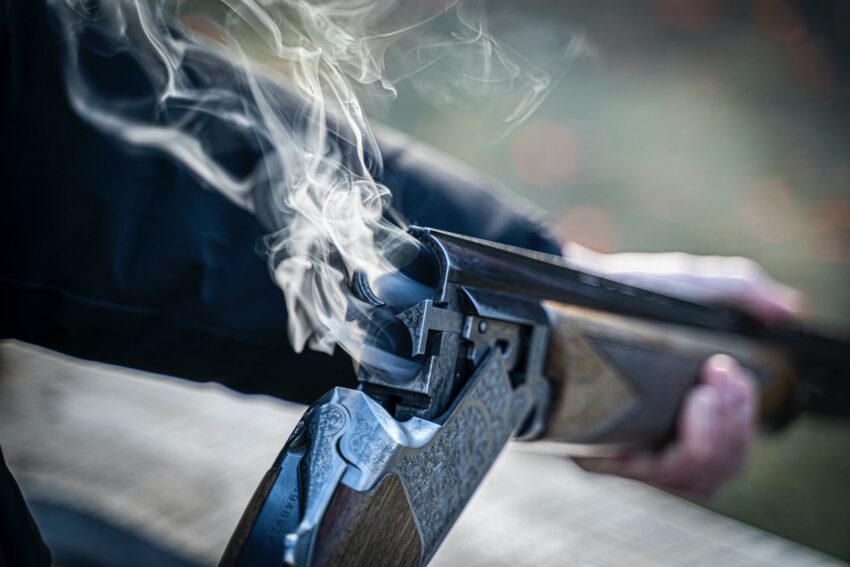Hunting regulations govern your ability to hunt and kill certain types of animals for sustenance or to limit their reproduction. Nonetheless, many individuals do not understand why these hunting rules were imposed.
Nonetheless, they are excellent hunters with much expertise. So, why were hunting laws enacted? There are various causes for this. These are the reasons I’ll look into more to have a better understanding.
Read through to get a handle on what I’ve laid out for you. Let us first examine why hunting laws were enacted.
Why Were the Hunting Laws Passed?
1. Other people’s safety
Hunting rules were enacted to keep hunters from killing or injuring others. These rules are intended to prohibit hunters from taking innocent animals, such as deer, without justification. These rules assist to safeguard the habitats of these animals and maintain a healthy population by restricting the number of animals that may be hunted.
2. Wildlife conservation
Originally, hunting restrictions were enacted to protect animals. These regulations were enacted to keep hunters from killing animals unnecessarily and to save creatures from becoming extinct.
3. Conscientious Game Hunting
Hunting has been a component of human society for thousands of years. When hunters take precautions to guarantee that the animals they are shooting are not endangered or threatened, this is referred to as responsible game hunting. Furthermore, hunters must adhere to strict restrictions to safeguard the safety of both themselves and the species they are hunting.
4. Hunting Laws Fair Chase
Originally, hunting rules were enacted to safeguard game animals from being pursued unfairly. These rules often forbid the use of baited traps, the surprise capture of wildlife, and the hunting of game during restricted seasons.
5. Enables multiplication
Hunting rules were enacted to allow for the breeding of game animals. This was done to provide food for the inhabitants as well as to help protect natural resources.
6. An equitable allocation of hunting laws
Hunting regulations were enacted for a variety of reasons. Some feel that hunting rules were enacted to help conserve wildlife, while others believe that they were enacted to help feed the population. It is also conceivable that hunting restrictions were enacted to aid with population control.
7. Prevent Illegal Hunting
The goal of hunting legislation is to deter illicit hunting. Hunting is a cultural custom that may be an enjoyable hobby, but it can also be hazardous if done illegally. Hunting rules protect both animals and hunters by limiting the sorts of animals that may be hunted and the techniques that can be utilized.
The Benefits and Opposition of Hunting
The Benefits of Hunting
Hunting has several advantages for humans, animals, and the environment. Humans gain most from hunting since it gives food. Hunting may also be a lucrative source of revenue for subsistence hunters as well as those who compete in hunting contests. Hunting may also offer food for the pet trade, which can help disadvantaged households maintain financial stability. Hunting may also offer food for affluent people’s tables. The main advantage for animals is that hunting offers food. Hunting may also serve as an excellent source of training and exercise for pets. Hunting may also offer food for the pet trade, resulting in financial stability.
Opposition to Hunting Regulations
There are several organisations who are opposed to hunting laws. The first group consists of animal rights advocates who consider that hunting is harsh and barbaric. They claim that shooting animals for sport causes unnecessary misery and anguish. The second category consists of hunters who feel hunting is a tradition that should be perpetuated. They say that hunting is an integral component of many countries’ cultures and contributes to environmental preservation. Farmers that rely on hunting to regulate the number of game animals are the final group. They contend that hunting is an efficient approach to lessen the number of animals killed by automobiles and firearms.
Why Are Hunting Regulations Required?
Many societies have a centuries-old practice of hunting. It is used to provide food for both humans and animals. Originally, hunting restrictions were enacted to prevent animals from being killed unnecessarily. The goal of hunting regulations is to limit the quantity of animals that may be hunted, the type of animals that can be killed, and the time of year that hunting can occur.
How Are Hunting Regulations Enforced?
Game wardens and law enforcement officials enforce hunting laws. These officials are in charge of enforcing hunting and fishing rules, as well as other wildlife laws. They may conduct arrests for hunting offences, seize unlawful hunting equipment, and seize illegally slaughtered animals.
What Are the Consequences for Breaking Hunting Laws?
Hunting rules are intended to conserve animals and guarantee that hunters use safe hunting techniques. The severity of the penalty for breaching hunting rules varies, although the majority of infractions result in a fine.
Understanding Hunting Laws
While you’ve learned why hunting regulations are made, it’s also vital to know where you can learn more about hunting laws. Fortunately for you, I’d like to recommend some of the greatest resources for learning about hunting rules.
Professional Hunters
Hunters who have been around for a long time without coming into contact with the authorities must have been doing something correctly all along. Talk to them and ask them to help you grow. They will be an excellent source of information, particularly on the dos and don’ts of hunting.
Officers of the law
Local wildlife enforcement officials or game wardens can once again give valuable information on hunting rules. They will provide you the proper instructions and may even teach a hunting group that requests their assistance.
Searching for Schools
If you want to be a professional hunter, you need take hunting lessons. The rules and legislation will be taught to you. Even so, if you are seeking for assistance, you must verify that you enroll in the appropriate college.

Conclusion
We have seen why hunting rules were enacted; yet, one thing is certain: hunting laws have succeeded to foster peace among the numerous interested parties. Everyone is safe, from the government to the prey. Furthermore, these regulations have established a definite manner of doing things. You will discover where and how the money received from licenses is spent.
Furthermore, thanks to hunting restrictions, hunters now know exactly which species to kill and which to avoid. As a result, on your next hunting excursion, take your time to hunt properly and to check that you’ve obeyed all applicable hunting regulations.
These regulations have been put in place to aid in the protection of wildlife, and failing to observe them can result in legal penalties and jail time. That is why it is important to respect these hunting restrictions while visiting national parks or wildlife reserves.

